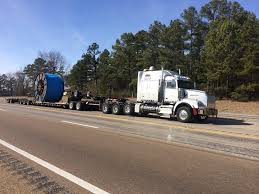
INDIANA – Starting July 1, motor carriers can begin hauling heavier loads of certain goods, but they must first apply for permits and adhere to restrictions designed to minimize the damage to Indiana’s highways and interstates.
Indiana HEA 1190, which takes effect July 1, contained several changes to Indiana’s oversize/overweight (OSW) motor carrier laws, including expanding Indiana’s Overweight Commodity Permit to include materials other than metal and agricultural products.
Under the new law, carriers can apply for a single-trip Overweight Commodity permits for divisible loads exceeding 2.4 ESALs and weighing 80,000-120,000 lbs. Although the law allows only 8500 of these permits annually, there are no limits on the number of annual permits issued for divisible loads less than 2.4 ESALs.
An ESAL, or equivalent single axle load, is a unit designed by the American Association of State Highway Officials (AASHO) to measure the damage done to roadways.
Previously, motor carriers not hauling metal or agricultural products were ineligible for an Overweight Commodity Permit and would need to make multiple trips or use multiple vehicles to meet the lower weight threshold.
Carriers who obtained an OSW Commodity Permit prior to Jan. 1, 2021 are grandfathered into the new law in certain circumstances. Their single-trip permits will not count towards the annual limit if they haul only the commodity requested on the prior permit and do not exceed the previous weight thresholds of:
- Up to 120,000 lbs. for metal and
- Up to 97,000 lbs. for agricultural carriers and those who haul logs, wood chips, tree bark or sawdust under an OSW Agricultural Commodity permit.
Under HEA 1190 and HEA 1150, what constitutes a civil penalty and how much carriers will pay for violating OSW rules will change. Deviating from the approved route or substituting a different vehicle other than what is listed on the permit will be a violation subject to civil penalties. Carriers could pay up to the following amounts for OSW violations:
- Up to $1,000 (formerly $500) for the first permit violation;
- Up to $1,500 (formerly $1,000) for each subsequent permit violation;
- Up to $5,000 (no change) for hauling an OSW load without the proper permit; and
- Up to $10,000 per violation for transporting loads too large or heavy to qualify for an OSW permit.
Among other OSW-related measures, HEA 1190 also:
- Instructs INDOT to change permit fees no later than Oct. 1;
- Allows INDOT to temporarily increase the number of OSW permits for divisible loads issued in response to an emergency or changes in market conditions; and
- Allows INDOT to suspend overweight divisible load permitting if they observe increases in infrastructure damage on a permitted route or the number of accidents associated with these loads.
Most Indiana OSW permits are issued by the Indiana Department of Revenue’s Motor Carrier Services (MCS) department, under the guidance and rules set by INDOT and in accordance with Indiana law. Also, MCS issues and collects civil penalties for OSW violations issued by Indiana State Police.
More information on Oversize/Overweight permits is available at osw.dor.in.gov. Permit applications may be submitted online through motorcarrier.dor.in.gov.



